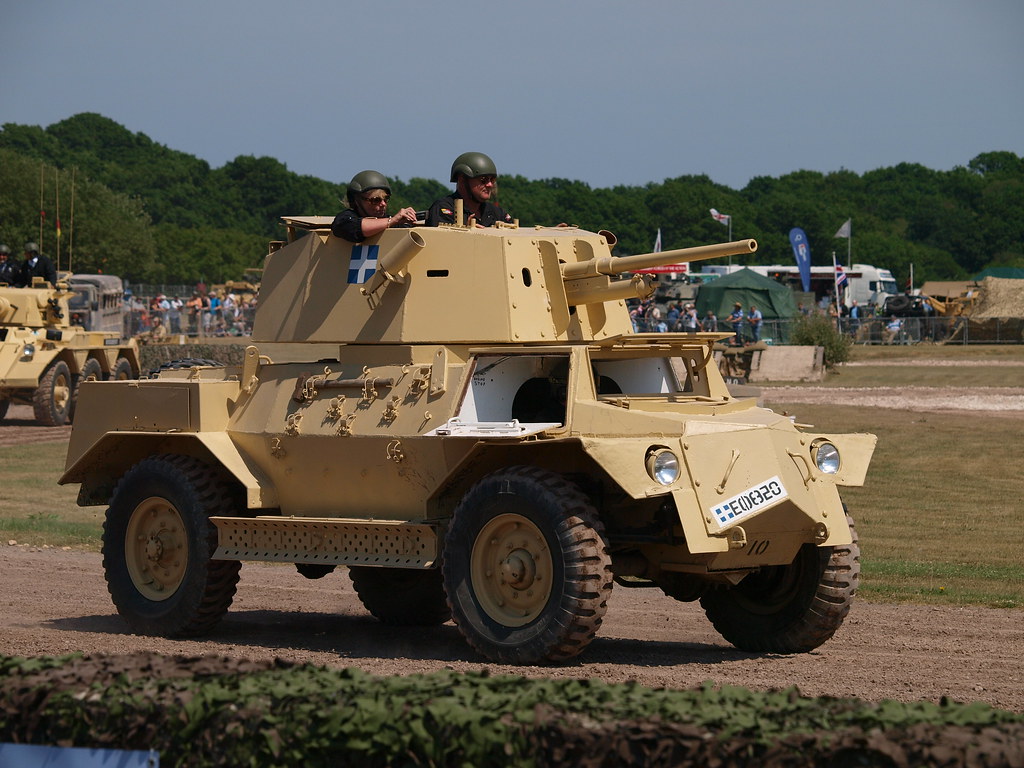
MarmonHerrington MkIV Armoured Car E3278808 Megashorts Flickr
The South African Reconnaissance Car, also known as the Marmon-Herrington Armoured Car, was produced in South Africa during the Second World War. Initiated in 1938 by the South African Government, the first version was based on a Ford 3 ton chassis, imported from Canada, and fitted with a four wheel drive conversion kit from the American.
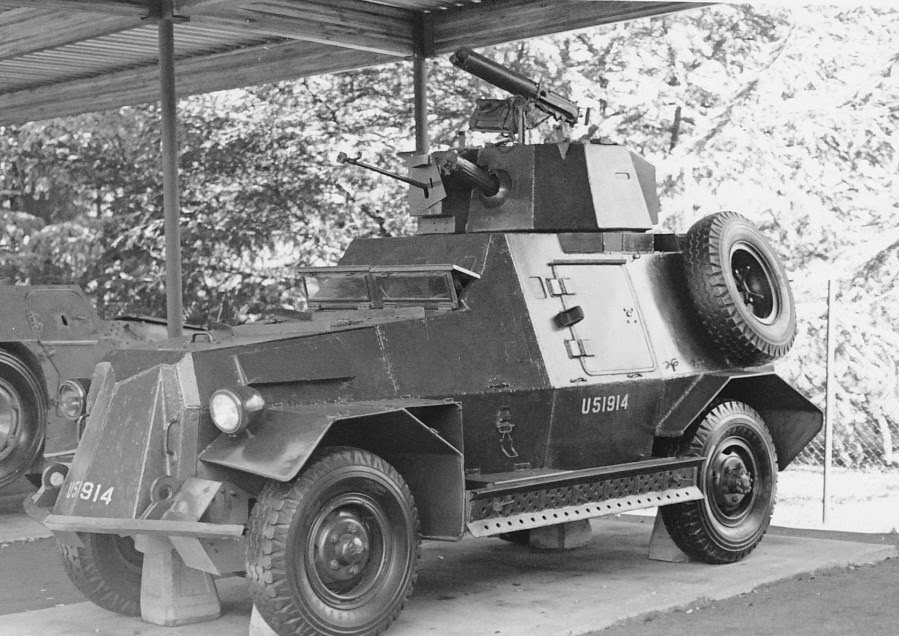
Armour force / Panssaroitu voima MarmonHerrington Armoured Car
MARMON HERRINGTON ARMOURED CAR Mk. II. Image: Marmon Herrington Mk. II (IWM) Year: 1941: Vehicle Type: Medium 4x4 Armoured Car: Origin & Designer: South Africa/Various: Numbers Produced: 887: Crew: 4 (Commander, Gunner, Loader & Driver) Main Armament: 1 x Boys Anti-Tank Rifle: Main Armament [@sponson_traverse] Elevation

MarmonHerrington Armoured Car Mk IVF at Latrun Armored Corps Museum
The Marmon-Herrington Company, Inc. is an American manufacturer of axles and transfer cases for trucks and other vehicles. Earlier, the company built military vehicles and some tanks during World War II, and until the late 1950s or early 1960s was a manufacturer of trucks and trolley buses.Marmon-Herrington had a partnership with Ford Motor Company, producing trucks and other commercial.
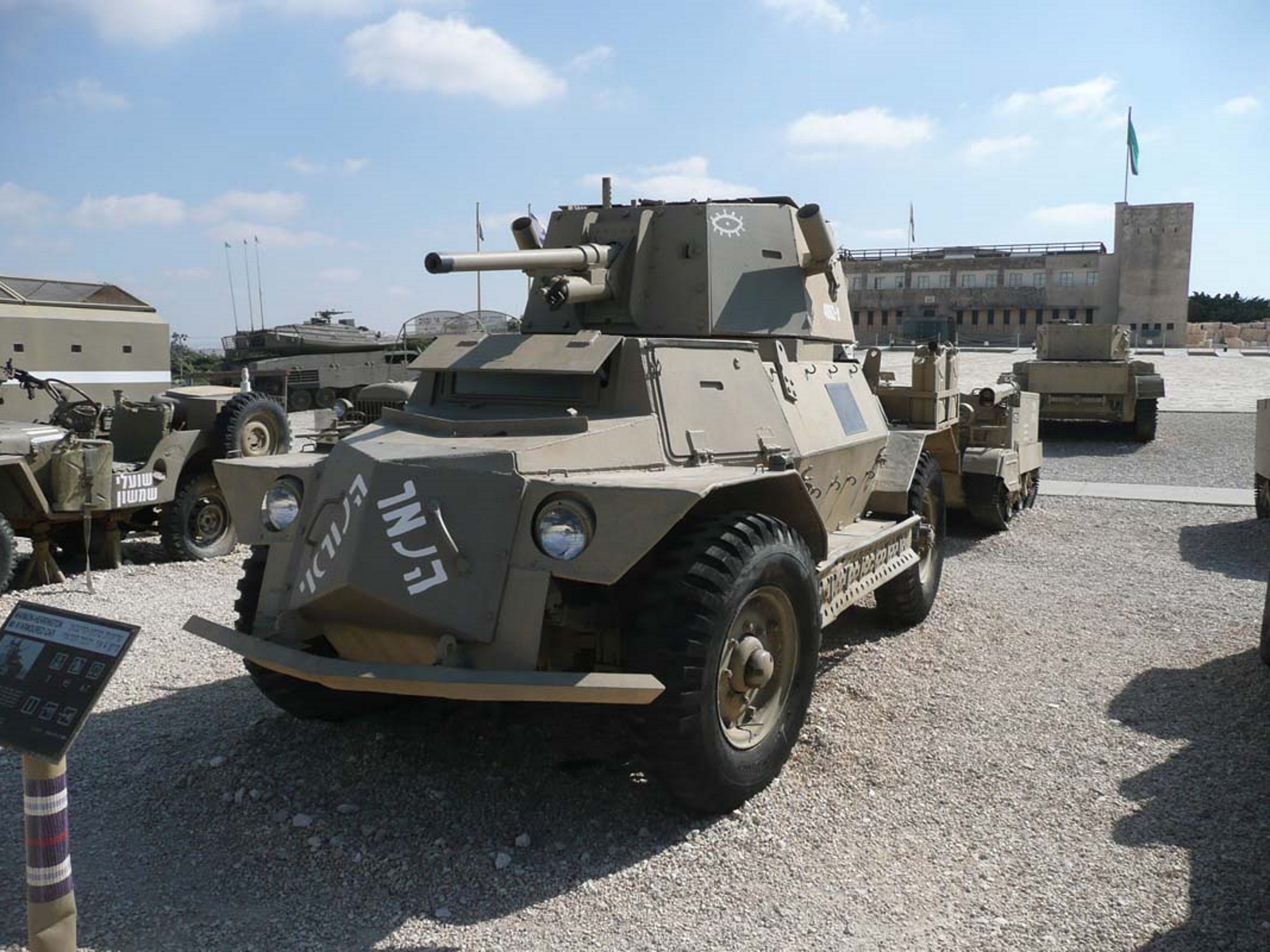
MarmonHerrington Mk 4f WalkAround English
A mixed design assembled in South Africa In 1938 the South African government emitted a specification for two armored cars models, to be built locally by South African industries with various shipped parts. Marmon-Herrington (USA) presented its own design in 1939, which was accepted for production.

Italian Marmon Herrington 1942 World War Photos
Marmon-Herrington Armoured Car from Deutsche Afrika Korps 14. German Marmon-Herrington Mk II 15. Marmon-Herrington Armoured Car (alias South African Reconnaissance Car), was a series of armoured vehicles produced in South Africa and adopted by the British Army during World War II. car.

German MarmonHerrington Mk III 24 World War Photos
With the two Marmon-Herrington armored cars from the recce unit in front, they quickly approached Subang, but the Japanese had barricaded the road. Three ox carts blocked the road. The driver of the first armored car, D.J. Udink, successfully rammed the carts aside but he immediately saw a second obstacle, a steel cable strung slanted over the.
.jpg)
FileMarmonHerrington MkIV Armoured Car (7527969448).jpg Wikimedia
The mass-produced South African armored car. The Marmon-Herrington Mk.III was planned as early as 1940. It is probably the best-known of all five variants built by the company, and the most produced overall. It was basically an enhanced version of the Mk.II, with a slightly shortened wheelbase for more agility, modified sloped armor, though of.

Armour force / Panssaroitu voima MarmonHerrington Armoured Car
South African Reconnaissance Car, better known under as Marmon-Herrington Armoured Car, was a series of armoured vehicles produced in South Africa and adopted by the British Army during World War II. In 1938 the South African government initiated development of an armoured car. The outbreak of the war led to a vehicle based on a Ford 3-ton truck chassis. As the country did not have an.

SOLD Very rare MarmonHerrington Mk IVF reconnaissance car SOLD
Tweet. The Marmon Herrington Armoured Car was the first major military vehicle to be produced in South Africa, and played a significant role in the early fighting in the Western Desert, where they were the most numerous type of armoured car available to the Allies. Work on producing a South African armoured car began in 1938 when two.
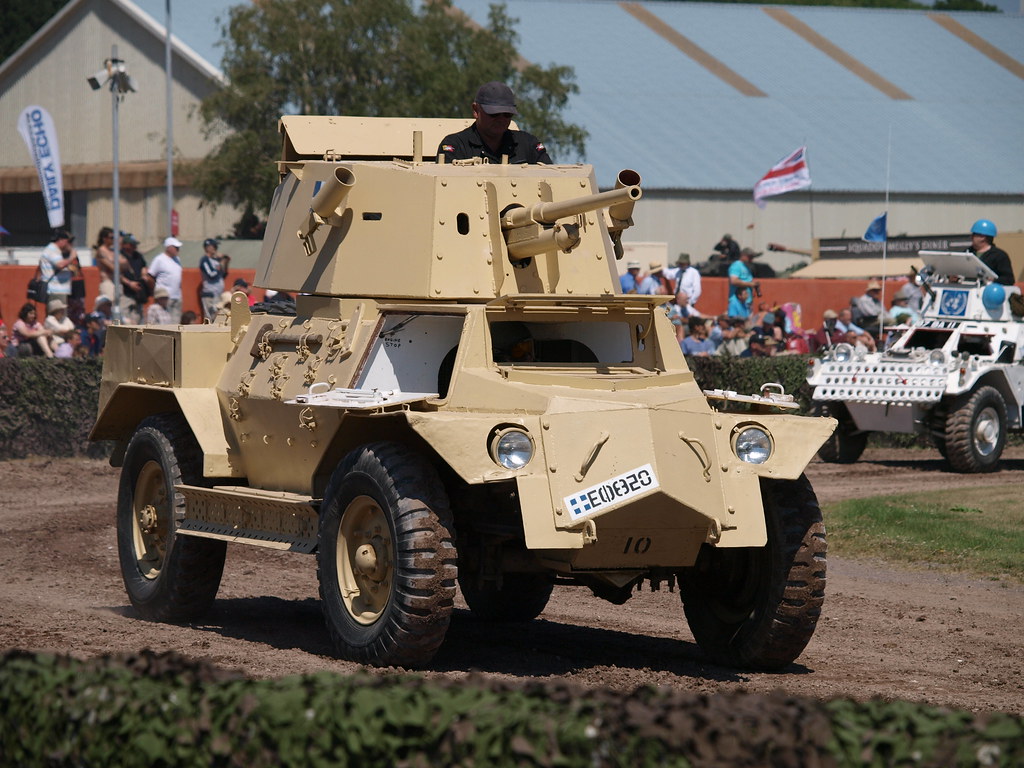
MarmonHerrington MkIV Armoured Car E3267207 Megashorts Flickr
Description The Marmon-Herrington Armoured Cars were a family of wheeled vehicles designed partially by the American Marmon-Herrington Company and constructed in South Africa originally for the South African Union Defense Force (UDF) but they also entered service with the British Military.
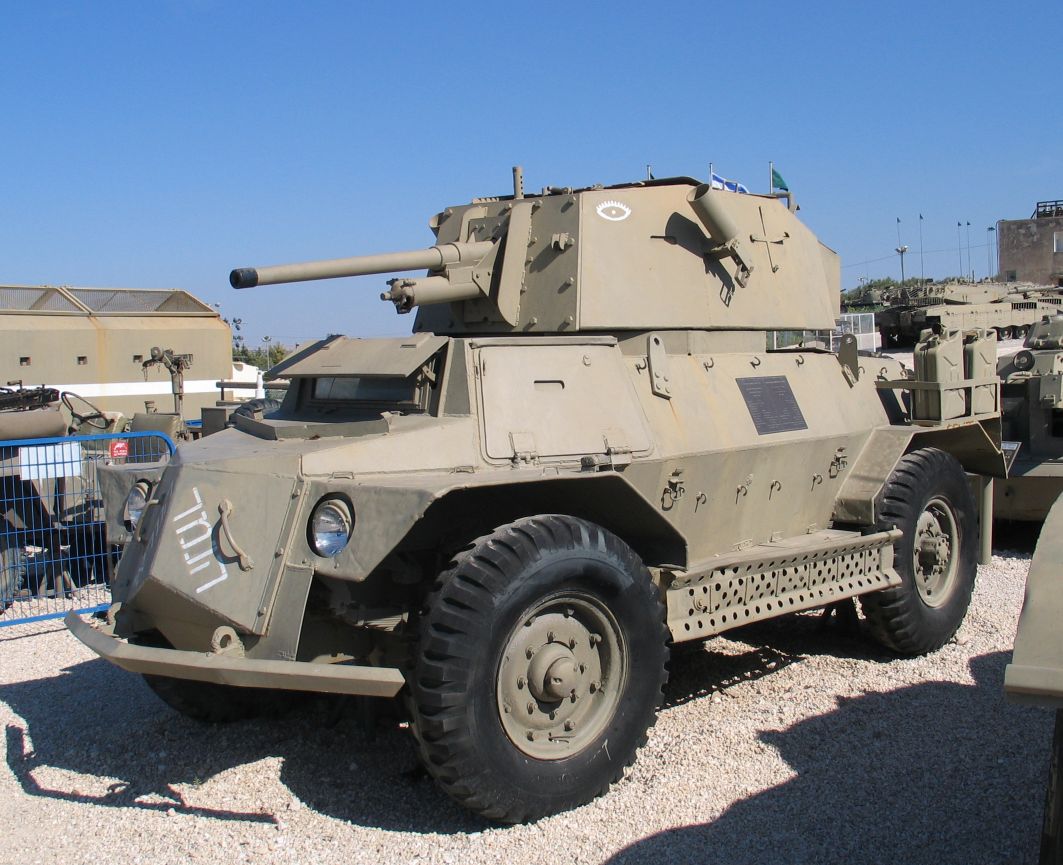
MarmonHerrington Armoured Car Wikipedia
The result was the Marmon-Herrington Armoured Car. These vehicles soon saw extensive use in the Western Desert by both the South African and British forces. Five versions were built, all of them 4-wheel drive. They were all fitted with a turret mounting a machine gun and a Boys anti-tank rifle. The final model, though, was fitted with a 2pdr.

MarmonHerrington Armoured Reconnaissance Car Mark 3 Photos
Both models (MkI and MkII) were engaged intensively in North Africa against the Italo-German troops because they were the only models of armored cars available in number at that time and had a good reputation for endurance. Marmon Herrington Mk.I and Mk.II specifications. Dimensions (L-W-H) : 5.18 x 2 x 2.67 m (17 x 6.5 x 8.7 ft)

MarmonHerrington MkIV Armoured Car P6266454 Megashorts Flickr
David Fletcher examines the Marmon-Herrington Mk IV, an armoured car produced by South Africa and used by the British, among others, during the Second World.

MarmonHerrington Armoured Car A Military Photos & Video Website
By 1940 there was a lack of armoured cars left in Britain, mainly because the BEF had suffered such large losses in France. In North Africa this shortage resulted in the British keeping the aging Roll-Royce in service to make up the numbers. The South Africans had been working on a design along with the US firm Marmon Herrington, and it was the.
Marmon Herrington Armoured Car Mk. II, 135
The Marmon-Herrington Armoured Car was a series of armoured vehicles that were produced in South Africa and adopted by the British Army during the Second World War. RAF Armoured Car companies possessed them, but seem never to have used them in action, making greater use of Rolls-Royce Armoured Cars and other types. [3] History

MarmonHerrington (South African Reconnaissance Vehicle) Photos
December 1941. A capsized Marmon-Herrington armoured car lies beside a road. Malaya, Bakri, 18 Jan 1942. Marmon-Herrington armoured car crew stops to take a compass bearing during a patrol. 13 April 1942. Armoured cars of the Royal Air Force Regiment on patrol in a street in Batavia, 19 December 1945.